Group check-in: Review each other's argument outlines...
Independent work today: develop 2-minute speechYou will work independently to develop your 2-minute argument for your assigned role within the team. You can get feedback from team members and from Mrs. Stewart but please try to work quietly as to not disturb other groups (or give away details about your argument).
Exit Ticket: Peer Feedback (again!)Get someone else within your team to look at what you have developed for your 2-minute speech. Get feedback and give feedback to someone within your team. Use the comments function. HW: Finish your 2-minute speech + rehearseFinish writing your speech.
Rehearse. Be sure you are not speaking too fast that your audience cannot follow your argument. If it is too fast, you'll need to revise and shorten your speech. Don't try to use every piece of evidence or every point you could make-- use your STRONGEST evidence, strongest ideas, strongest analysis and insights. Practice speaking so that you are able to look up from your speech and make eye contact. Print your speech out or write it on note cards so that you have it with you in case you get nervous. You want to avoid reading it word-for-word the whole time (because then you have no engagement with your audience) but be sure you have it with you in case you get nervous. This will be timed and you will be cut off from speaking at the 2-minute time limit. The Formative Debate will begin at the start of next class. (Thurs. Feb. 7th for A3; Friday, Feb. 8th for B1) Check-in Task: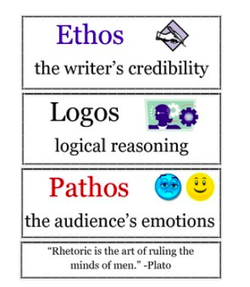 Today you will be working within your team. Using the argumentative writing/speech rubric, you and your team will evaluate a few samples of claims and counterclaims (file is in your WH Drop folder). This will help you become more familiar with the assessment rubric, as well as see various ways to effectively write claims and counterclaims and see how the 2 are linked together to support the claim while also providing a more neutral tone in an argument as this will appeal to an audience or reader's logos. Afterwards, you will begin working on drafting a claim and a counterclaim -- as well as other main parts of a potential argumentative speech in preparation for your team's upcoming debate. Helpful Resources for Today's Class
HW: Finish drafting your argument outline; outline due @ beginning of next classBe sure you have completed the outline that was dropped in your WH Drop folder. This is needed at the beginning of class as you will be reading/reviewing the outline of your team mates and deciding on which role each member of your team will play in the debate after Chinese New Year.
Please come to class prepared with your outlined argument. After today's formative vocabulary quiz on WWI you will work with your group to begin preparing for your role in next class' formative debate on the most significant cause of WWI. Your team will have assigned a cause you will be arguing is the most "significant"; your team will also be assigned on another cause that you will be opposing/refuting in the debate and will need to develop a counterclaim and provide evidence to strengthen your argument that the other cause is less significant--and evidence to support your claim why your cause is the most significant cause of the war. This debate isn't about winning (tho. that can be fun) but about learning how to develop strong arguments you can support and how to develop strong counterclaims that serve the purpose of both refuting other claims and further strengthening your own claim/argument. Helpful Links for today's class:
HW: Read, research & take notes to help Prep for debate.You will need to take notes and find evidence to support your team's cause. Prior to the debate you will be writing a formative essay so it is important that you develop a claim and counterclaim on your own. Later on, your team will read each other's argumentative essays and decide on which team member has a stronger introduction and claim, who has a stronger counter claim and who has a stronger conclusion-- this will help teams decide on who serves which speaking role.
But first, you must research! Use the following resources for research:
Today, students will work on developing the missing "Document G: Nationalism" for the DBQ packet. To be ready to work on the DBQ, students should have completed the homework, having found a primary source prompt (political cartoon, photo, letter, speech, map, graph, etc.) representing Nationalism prior to 1914. Students should have completed the OPVL for this source prior to coming to today's class. In class today, you will work with a group to give and receive feedback on the source used. You will then complete steps #2-4 during class today. Helpful Links for today's tasks: Be sure you know vocab terms of wwiShort formative Vocab Quiz on WWI Next class!
Use this Quizlet Flashcard set to study. The DBQ Task document has been dropped in your WH Drop folder. Helpful Links for this week's tasks: HW: Find a Source for "Document G"; Complete OPVL |
Mrs. Stewart's CourseYou'll find a daily agenda posted here for each day that class meets Archives
May 2020
Categories |
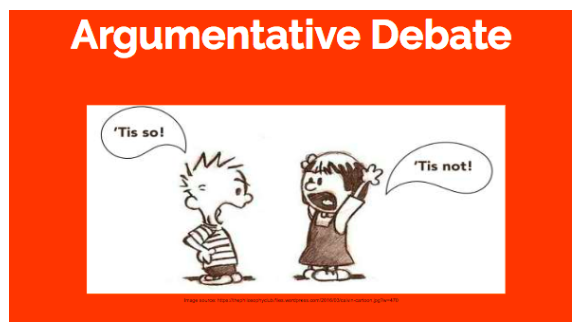
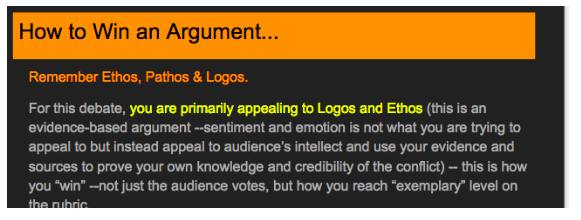
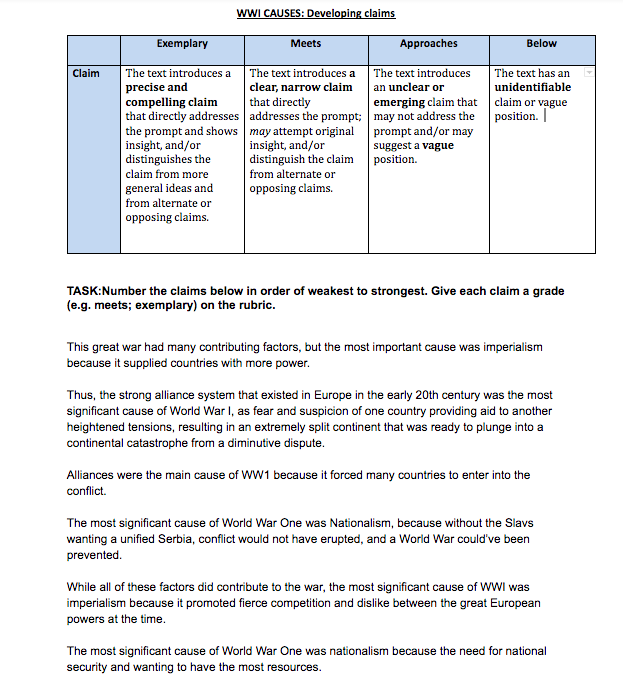
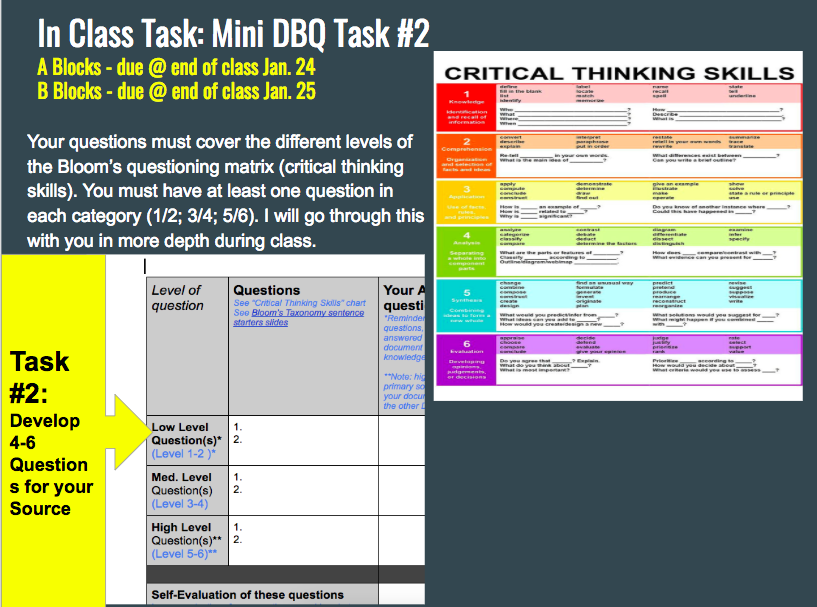
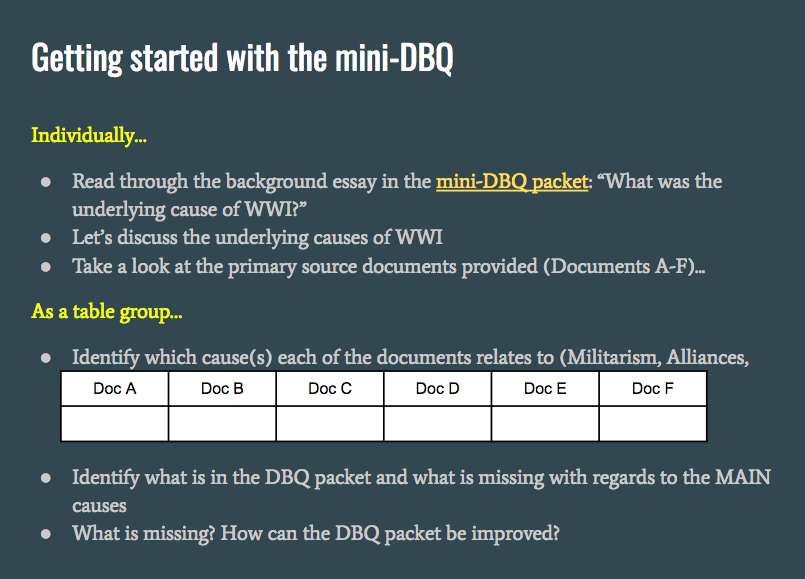
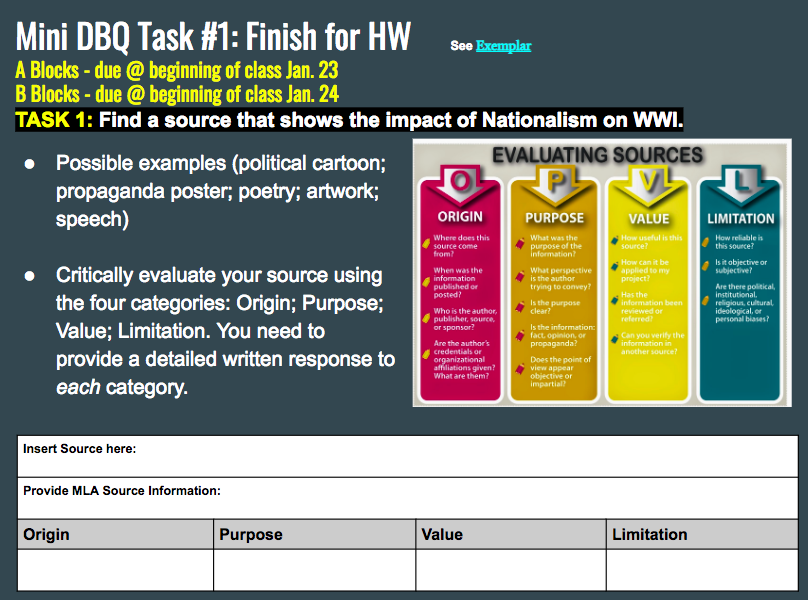
 RSS Feed
RSS Feed